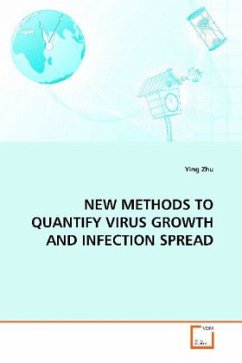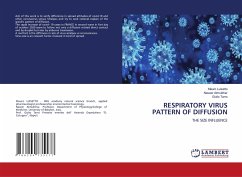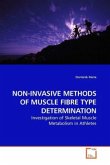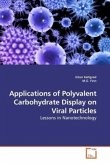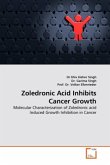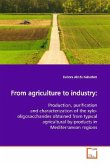Virus production was studied at the single-cell level
by quantifying yields of vesicular stomatitis virus
from infected baby hamster kidney cells. Single-cell
yields spanned from 8000 to below the detection limit
of 10 virus particles. Although viral genetic
variation contributed little to the diversity, cells
infected at different phases of their growth cycle
produced from 1400 to 8700 virus particles,
accounting for the middle-to-high range of the yield
distribution. In another study, fluid flows was
employed to enhance virus spread, producing elongated
regions of cell death shaped like comets. Inhibition
of comet formation by 5-fluorouracil, combined with
quantitative imaging, provided a measure of drug
susceptibility that was nearly 20-fold more sensitive
than the established assay. To better control the
culture and flow conditions, we implemented this
assay in microscale channels, employing passive
pumping to drive flows across infected cells. The
greater sensitivity, reduction in scale, simplified
fluid handling, and image-based quantification make
this flow-enhanced infection platform attractive for
applications in high-throughput drug screening.
by quantifying yields of vesicular stomatitis virus
from infected baby hamster kidney cells. Single-cell
yields spanned from 8000 to below the detection limit
of 10 virus particles. Although viral genetic
variation contributed little to the diversity, cells
infected at different phases of their growth cycle
produced from 1400 to 8700 virus particles,
accounting for the middle-to-high range of the yield
distribution. In another study, fluid flows was
employed to enhance virus spread, producing elongated
regions of cell death shaped like comets. Inhibition
of comet formation by 5-fluorouracil, combined with
quantitative imaging, provided a measure of drug
susceptibility that was nearly 20-fold more sensitive
than the established assay. To better control the
culture and flow conditions, we implemented this
assay in microscale channels, employing passive
pumping to drive flows across infected cells. The
greater sensitivity, reduction in scale, simplified
fluid handling, and image-based quantification make
this flow-enhanced infection platform attractive for
applications in high-throughput drug screening.

